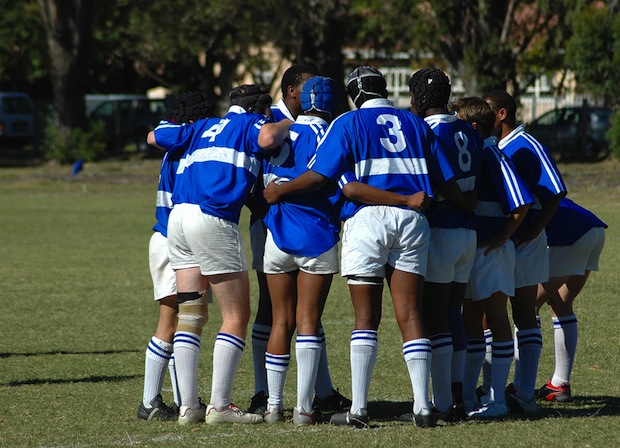Always wanted to meet more locals? Join a sports club!
While many international students, migrants, and refugees are passionate athletes, they do not play competitively at local clubs. Instead, they choose to play socially. Tim Morgan was at the forum “Turn up and play – the informal sport opportunity” by the Centre of Multicultural Youth that discussed the need for greater social sport programs.
Kate George began laughing in absolute bewilderment when she recalled how difficult a local soccer league had made it for a newly arrived Sudanese child to play.
The child – who had never played before – missed lower age group restrictions by one day and was forced to play in an age group he was neither confident nor competent enough to compete in.
That was when Miss George, Healthy Active Projects Officer at Brimbank City Council, began the tiring bureaucratic battle.
“We had to prove we weren’t trying to tweak the rules, prove he didn’t have great skills, prove we weren’t trying to steal the cup – at under 12’s!” said Miss George.
Speaking at the Centre for Multicultural Youth forum named “Turn up and play – ‘the informal sport opportunity”,Miss George said formal clubs and sporting structures needed to become more flexible to be more inclusive to those newly-arrived and still settling into the community.
The need to include more people from culturally and linguistically diverse (CALD) communities in organised sport – including international students – was a hot topic at Wednesday’s forum.
While 4.6 million Australian adults compete in organised sport, 57% of children from CALD households are classified as inactive. That is 18% higher than their non-CALD counterparts.
Keynote speaker Dr Emma Sherry from Latrobe University’s Centre for Sport and Social Impact said there was a need to better engage CALD households in sport, as sport promotes social inclusion and nurtures valuable relationships.
“Sport has a multiplying effect on social connection,” said Dr Sherry.
“Sport clubs give you mate’s rates. Sports clubs give you access to resources, and those resources are valuable.”
The audience that consisted mostly of local councils, sport and cultural organisations also heard a presentation from Access Rugby, a program that to date has provided 60 participants with vocational training courses and 35 with employment.
Rebel Rugby Officer Jeremy Nikora said Access Rugby wasn’t about rugby, but provides a social program that could help young adults of all nationalities engage with the community and address cultural differences.
Given the crowded state of the room, it is an area that many are still trying to successfully address.

